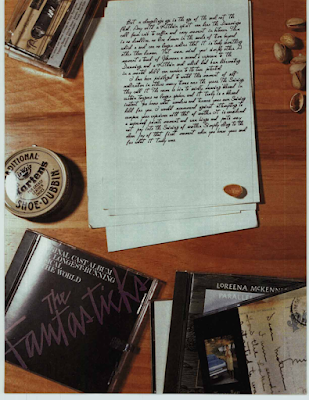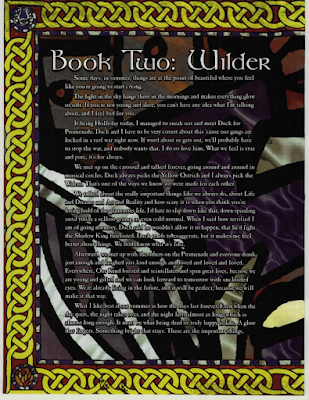Very often - Monday's post is an obvious example - I will post an idea on the blog for a campaign I'd like to run or a book I'd like to write, and people will pop up in the comments to say something like: "Why use D&D for this? Wouldn't Troika!/Into the Odd/FUDGE/etc. be better, for reasons X, Y and Z?"
These suggestions are always well meant. But I'm now at the point in my life where I feel comfortable saying that I can't really imagine ever playing anything with a ruleset other than D&D of the B/X or BECMI "classic" variety (with Pendragon and Cyberpunk 2020 being possible exceptions).
Why is this? Partly, I have to admit, this is just because classic D&D is comfortable for me now - as comfortable as a well-worn pair of slippers I can potter about in before bedtime. I don't really have to think about it. Yes, I still have to look things up in the rules, but I know where to look, and I know the system well enough to be able to wing almost anything and be confident it won't go horribly wrong.
But I would also make the case that D&D in its classic form is just a fabulously good game - certainly much better than any of its competitors in the fantasy genre:
- It deals with advancement so much better. The rate at which PCs gain levels is at the Goldilocks "just right" point, so that it is not too easy and feels meaningful, but is not so rare as to be frustrating. More importantly - and the genius of this is very rarely if ever remarked upon - PC levels map perfectly onto monster HD and also dungeon levels, so it is easy for the DM to gauge levels of challenge, what needs to be on each dungeon level, how much treasure needs to be in it, and so on (PCs in level 1 of a dungeon will be roughly 1st level and the monsters in it will need to have roughly 1 HD, and there will need to be X number of gp-worth of treasure present to permit advancement to level 2 - and so on).
- Relatedly, D&D has a huge catalogue of monsters in its many bestiaries, and is simple enough that new monsters can easily be created by the DM. As PCs advance in level, it is always possible for it to be the case that there of are lots of monsters weaker than them, as strong as them, and more powerful than them, thus presenting a variety of challenges throughout the gameworld. Even as they get to 9th level or above, there are going to be monsters out there who they can aspire to some day strive against, monsters they can easily beat up, and monsters which present a decent challenge.
- Advancing by level in my experience is just more exciting and fun than the alternative, which many systems deploy, of the PCs getting XP and spending it to improve a stat or gain a particular ability. Going from level 3 to 4 is simply more satisfying and feels like an achievement.
- This is admittedly a subjective thing, but the level of crunch in classic D&D is, again, at the Goldilocks "just right" point. More detailed and running the game would become a chore. More abstract and events would feel weightless and inconsequential.
- XP for gold. More than with any other game - and, again, the genius of this is not remarked upon frequently enough - classic D&D has a reason to go adventuring built in. The PCs need gold and will go out in pursuit of it. They don't need to ride the DM's railroad, and the DM doesn't need to put vast amounts of time and energy into coming up with a "plot". You just wind the campaign up and watch it go.
- D&D doesn't break. It's like an ABBA song: even when Piers Brosnan or Stellan Skarsgard are singing one in a ropey jukebox musical, it still kind of works. D&D also has this quality. You can bash it around and mess with it and do it badly, and it will still be ok. I'm not sure any other roleplaying game really has this quality.




